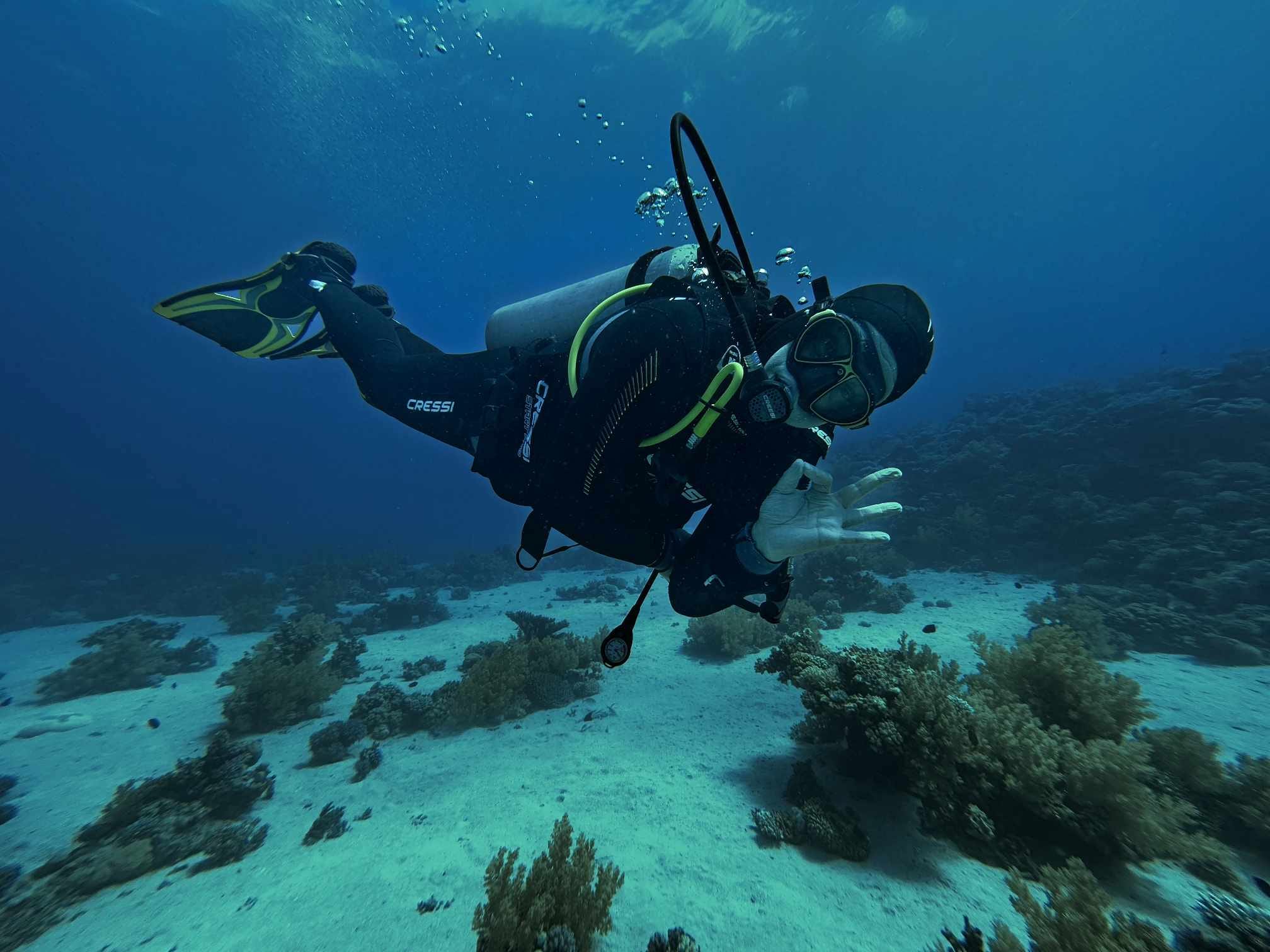Scuba diving is an exciting and inspiring activity that opens the door to a world of underwater wonders. Beginners have a lot to learn when embarking on this aquatic adventure, encountering a unique mix of thrills and challenges beneath the surface. While the allure of exploring the depths is undeniable, it is vital to be aware of the importance of troubleshooting to ensure a safe and enjoyable dive. This article was created together with the questions and answers given in the training of PADI underwater diving instructor Valters Preimanis during diving courses for beginners.
The most common questions asked by novice divers
How to overcome fear and nervousness before and after diving?
Question: What are some effective strategies for reducing pre-dive jitters and overcoming fears that can occur underwater?
The diving instructor answers: Beginner divers can use a variety of techniques, such as deep breathing techniques and positive visualization, to reduce anxiety and overcome fear underwater.
How to navigate safely in the underwater environment?
Question: How to properly navigate and avoid getting lost and prevent getting lost in the underwater environment? How to navigate successfully?
Answer: It is important to listen carefully “Open Water Diver” classes and learn the correct navigation techniques, practice recognizing underwater landmarks and use a compass and dive computer to ensure accurate underwater navigation.
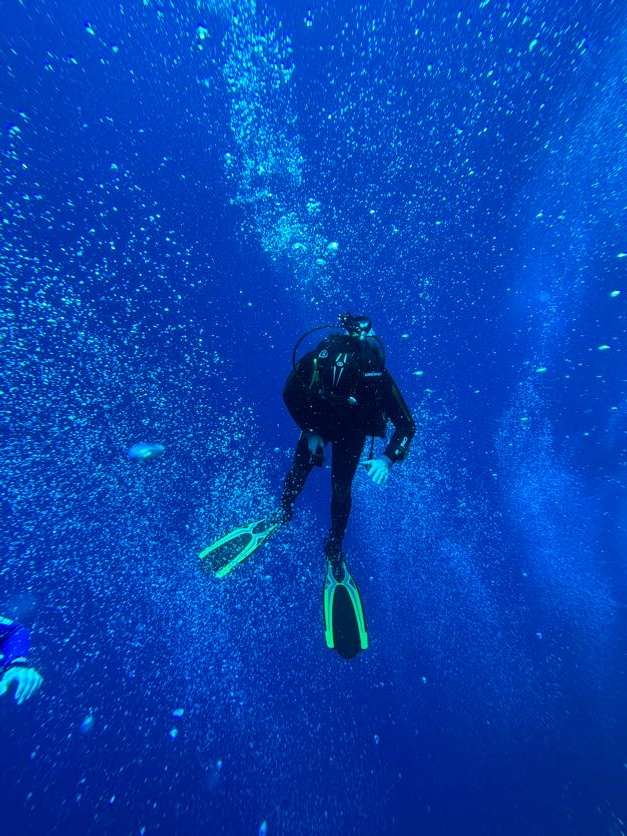
Thrills and challenges for diving beginners
Entering the underwater kingdom for the first time is an exciting experience. The beautiful underwater world, weightlessness and the extraordinary beauty of underwater landscapes fascinate divers. However, with this excitement come challenges that can arise that require quick thinking and effective problem solving.
The importance of troubleshooting for safe diving
Ensuring safe diving is very important in safe diving. Troubleshooting plays a vital role in dealing with unexpected problems that can occur underwater. For both beginners and experienced divers, it's important to be prepared to respond and resolve issues ranging from equipment malfunctions to communication breakdowns.
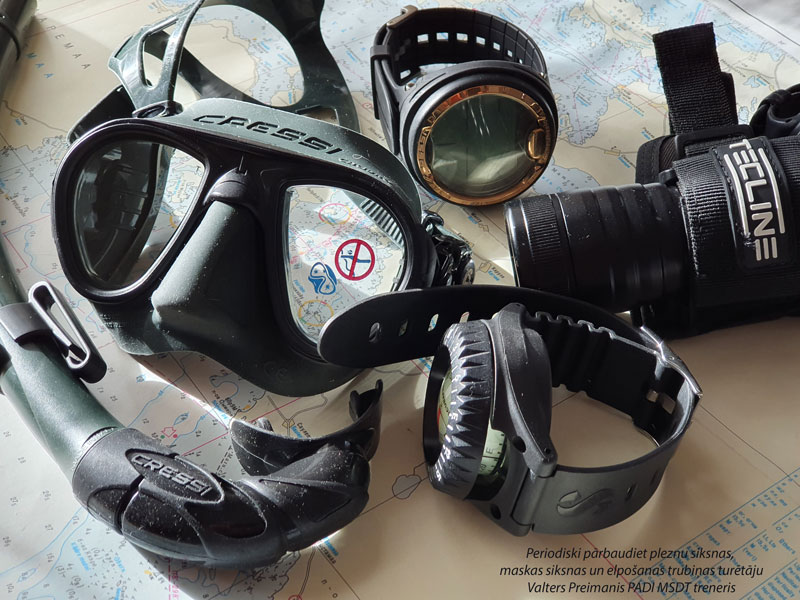
Diving equipment problems
Scuba equipment is the guarantor of every diver's safety, and problems with the equipment can cause significant problems. Understanding how to fix common equipment problems is critical to ensuring a smooth and safe dive.
Mask flooding and fogging
One of the most common problems experienced by beginners is the discomfort caused by water entering the diving mask and fogging up. Proper diving fee attachment and defogging techniques can alleviate these problems by providing clear vision throughout the dive.
Dive regulator malfunction
Regulator malfunctions can be worrisome, but knowing how to diagnose and fix problems with this critical piece of equipment is critical. Regular dive equipment maintenance and pre-dive inspections help ensure a reliable and functional regulator.
Does the maintenance of diving equipment affect the safety of diving, we ask the instructor of diving club "Daivings" Valters Preimanis?
Just as you take care of the regular maintenance of your car, you should also take care of it diving equipment maintenance deadlines. Timely maintenance and monitoring of diving equipment reduces the risk of incidents and injuries, protect your investment in equipment and carry out timely maintenance of diving equipment, confirms diving instructor Valters Preimanis.
Buoyancy control problems
Proper buoyancy skills are learned in diving courses "Open Water Diver" and "Peak Performance Buoyancy". Problems with buoyancy control can cause frustration and affect the overall diving experience. By learning effective techniques and practicing buoyancy control exercises, a diver can improve these important skills.
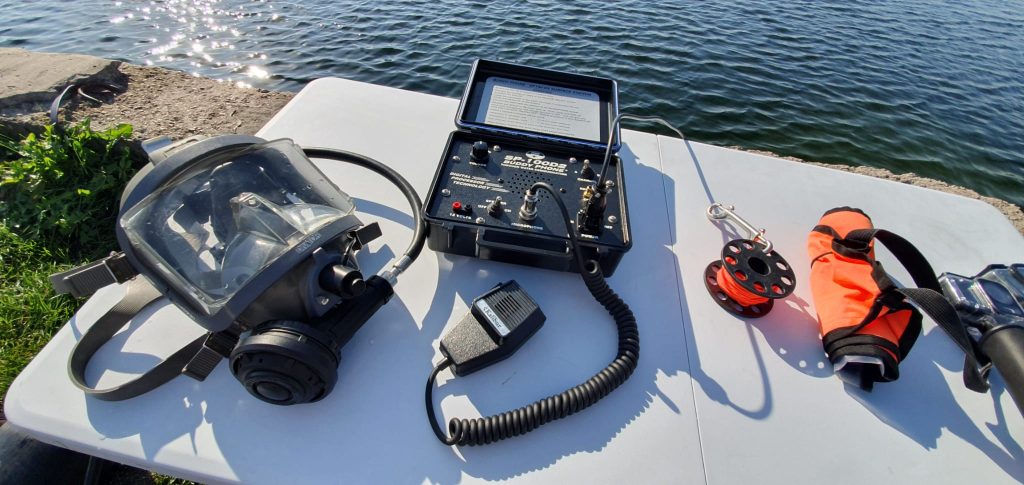
Communication problems and communication under the water surface
Effective communication between divers is critical during a dive to ensure the safety and coordination of the dive team. Overcoming communication breakdowns includes learning underwater signals, separating from a dive buddy, and resolving misunderstandings.
Hand signals and underwater communication
In an underwater environment where verbal communication is impossible, hand signals are the primary form of communication. Divers should familiarize themselves with standard hand signals, ensuring clear and concise communication with their dive buddies. Regular practice and mutual understanding of signals promotes smooth underwater dialogue.
Losing your partner underwater
Losing dive buddies while diving is a common problem that can cause stress and anxiety for the diver. Divers should establish and maintain buddy systems by communicating with each other on a regular basis. Following separation procedures, such as reuniting at a designated location, helps reduce the stress of being apart for a short period of time.
Overcoming misunderstandings
Misunderstandings can occur even when best communication practices are followed. To overcome these challenges, divers must prioritize active listening and signal clarity. Pre-dive briefings and making sure everyone agrees on dive plans can reduce the chance of underwater misunderstandings.
Management of anxiety and fear
Scuba diving, while exciting, can cause anxiety and fear, especially for beginners. Overcoming these emotional challenges includes overcoming pre-dive jitters, overcoming anxiety underwater, and using techniques to effectively manage fear.
Avoiding pre-dive anxiety
Nervousness before diving is normal, especially for novice divers. Developing a pre-dive routine, using relaxation techniques and seeking support from experienced divers can help reduce anxiety before entering the water. Familiarity and preparation are key to building confidence.
Dealing with pre-dive anxiety
When underwater, the anxiety decreases, but in some cases it may persist. Controlled breathing, positive visualization techniques, and focusing on the beauty of the underwater environment can help divers overcome anxiety while diving. Regular practice and gradual exposure over time helps build confidence.
Methods for overcoming fear
Fear can be a powerful emotion, but divers can use different techniques to face and overcome it. We envision that gradual exposure to challenging diving conditions and following the guidance of experienced instructors or mental health professionals can empower divers to manage and overcome their fears.
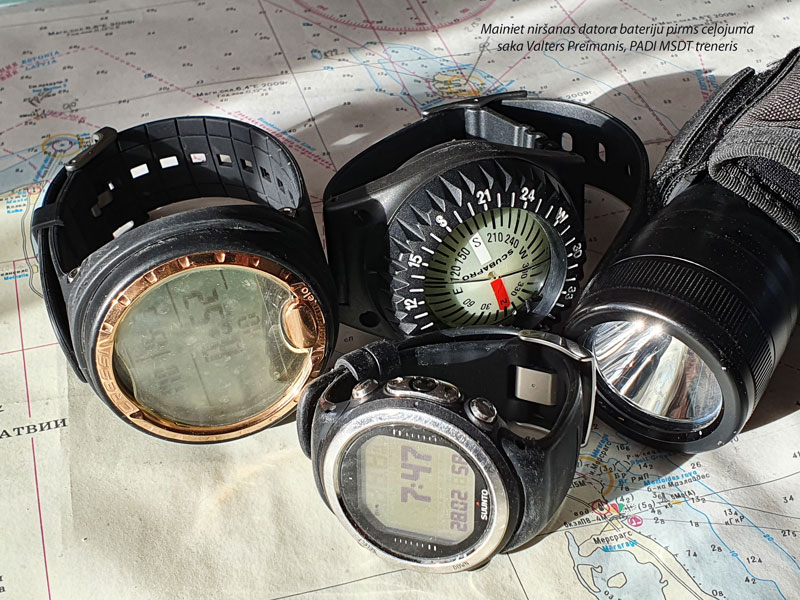
Navigational challenges
Navigating underwater landscapes requires skill and precision. Overcoming navigational challenges includes solving problems such as getting lost at depth, managing underwater currents and drifts, and using dive computers effectively.
Getting lost in the deep, what navigating the underwater world is like
Disorientation underwater is a common problem. Divers should improve their navigation skills by training, using visual cues and using underwater landmarks. Carrying a compass and maintaining situational awareness promotes effective navigation and prevents disorientation.
Currents and going off course, what are the correct navigation strategies
Navigating underwater in the face of undertow currents requires skill and adaptability. Divers should learn techniques to swim against or with the current, depending on the situation. Understanding local currents and planning your dive accordingly improves safety and provides a more controlled diving experience.
Effective use of dive compasses and computers
Dive compasses and computers are valuable tools for monitoring direction, depth, time and decompression limits. Overcoming the challenges of dive computers involves understanding their functions, checking their settings regularly, and becoming familiar with their alarms and indicators. Proper training and ongoing education in the use of a dive computer contributes to effective navigation and dive planning.
Physiological issues
Physiological problems such as ear alignment problems, seasickness, and ear and sinus barotrauma can affect divers' overall well-being. Overcoming these challenges requires awareness, preparation and appropriate responses.
Ear pressure equalization problems and solutions
Equalizing the pressure in the ears and paranasal sinuses is essential to prevent discomfort and potential injury. Divers should regularly practice proper alignment techniques such as Valsalva maneuver, and address congestion issues before diving in. Regular alignment helps prevent ear barotrauma during landing.
Symptoms of seasickness
Seasickness can affect even experienced divers. Management of motion sickness includes choosing appropriate dive sites, avoiding a heavy meal before diving, and using anti-motion sickness agents if necessary. Maintaining a horizontal body position and focusing on the horizon can also reduce symptoms.
Management of ear and sinus barotrauma
Barotrauma in the ears and sinuses can occur due to changes in pressure. Divers should equilibrate early and often during descent, avoid diving with respiratory infections, and seek medical attention if symptoms of barotrauma persist. Proper leveling techniques and descending at a controlled rate help reduce the risk of ear and sinus barotrauma.
By addressing these communication impairments, anxiety and fear management, navigational issues, and physiological issues, divers can improve their overall diving experience and provide a safer and more enjoyable underwater experience. Continuous training, practice and a proactive approach to problem solving contribute to the development of confident and capable divers.
Recovery after diving
Post-dive relaxation is an essential aspect of diving that ensures the well-being of divers after their underwater adventures. This includes proper rest, hydration (water consumption) and nutrition, as well as recognizing and treating diving-related illnesses.
Prevention of fatigue and exhaustion
Diving can be physically demanding and divers may experience fatigue and exhaustion, especially after multiple dives or in challenging conditions. Adequate rest between dives, proper hydration and maintaining physical fitness help manage fatigue. Divers should listen to their bodies, take breaks as needed, and prioritize overall wellness to prevent greater exhaustion.
Water consumption and nutrition for divers
Correct use of water, hydration and nutrition are essential elements of recovery after diving, confirms the instructor of diving club "Daivings". Dehydration (lack of water in the body) can contribute to fatigue and increase the risk of decompression sickness. Divers should be well hydrated before, during and after the dive. A balanced diet rich in nutrients, including carbohydrates and electrolytes, supports recovery and helps replenish energy expended during diving. Water balance means the balance between water taken in and lost by the body. The minimum required amount of water per day is equal to the amount that compensates for water loss in the body. Water loss increases with increased physical activity or stress.
Recognition and treatment of diving-related illnesses
After diving, it is very important to be alert for symptoms of diving-related illnesses, e.g. decompression sickness or barotrauma. The key is to recognize early signs, such as joint pain or unusual fatigue. If symptoms occur, divers should seek immediate medical attention and recompression therapy if necessary. Being aware of the potential risks and following safe diving practices reduces the likelihood of diving-related illnesses.
Further education and skills building
Diving is a continuous learning journey and divers can improve their skills and knowledge through ongoing education and training. This includes seeking additional training, improving existing skills, and joining a supportive diving community.
Search for additional training
Divers can expand their diving capabilities and knowledge by attending advanced training courses such as “Advanced Open Water Diver” training that can be found on this page. Advanced diving training certificates such as Nitrox or Rescue diver, provides additional skills and insight. Research in further education not only improves safety, but also opens up new opportunities in the study of various underwater environments.
Improving your skills for success
Improving skills is a continuous process for scuba divers. Regular practice of essential skills such as buoyancy control, navigation and emergency procedures contributes to continued success and confidence in a variety of diving scenarios. Refresher courses and skills workshops offered by dive centers can help divers improve their techniques.
Joining the diving community on Facebook for support
Joining the diver community “Daivings and freediving in Latvia PADI” provides divers with valuable support and a sense of camaraderie. Sharing experiences, tips and insights with other divers fosters a sense of belonging and encouragement. Card of diving club "Daivings"., online forums and community events offer the opportunity to connect with like-minded people, share knowledge and get support on your diving journey.
Timely problem solving in diving
Scuba diving is not just an adventure under the waves; it is a journey of problem solving and continuous improvement. Each challenge faced and overcome contributes to the diver's growth and skill. A problem-solving journey improves the overall diving experience and increases stamina.
Growth as a confident and capable diver
As divers overcome both expected and unexpected challenges, they emerge not only as capable underwater explorers, but as individuals who thrive in the face of adversity. As a culmination of effective problem solving, ongoing education and community support, divers are confident, skilled and passionate about the wonders of the underwater world. The journey continues, with each dive bringing new discoveries and opportunities for growth.
Follow us on social networks and stay up to date with news, pictures and video content about our ice diving events.
- Facebook: facebook.com/diving
- Instagram: instagram.com/divingslv
- YouTube: youtube.com/c/DivingsLv
Join our diving community and give yourself the opportunity to immerse yourself in the exciting world under water!
Scuba diving club "Diving"
Pieneņi street, Mārupe district, Riga district
Phone for communication 220-77-202

